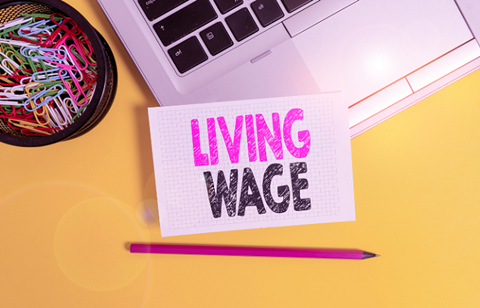
More than six in 10 low-paid workers believe receiving the real living wage would improve their mental health, research has revealed.
The poll of 1,702 adults in full-time employment but earning less than the real living wage, carried out by the Living Wage Foundation and market research agency Survation, also found that the same proportion (63%) believed their family lives would improve.
The real living wage is currently set at £9.90 per hour across the UK except in London where it is £11.05. It is paid voluntarily by almost 9,000 UK employers.
Meanwhile the legal minimums are set at £8.36 for workers aged 21 or 22 and £8.91 for those aged 23 or older.
Findings from the Survation poll included that 38% of respondents are falling behind on basic household bills, up from 29% in December 2020.
More than a quarter (28%) of those earning below the real living wage admitted to being unable to keep their homes warm this winter, according to the survey, an increase from 20% in 2020. More than one-third (37%) of those in Wales and 31% of those in the north of England gave this answer.
One in five (23%) have fallen behind on rent or mortgage payments, and 17% had been forced to take out payday loans to cover essentials. More than one-quarter (28%) of those in London admitted to getting behind on rent or mortgage payments and 21% have had a payday loan for essentials.
Furthermore, 42% of women said they fell behind on household bills compared to 35% of men, and 29% of female respondents had been unable to heat their homes versus 26% of men.
Women also reported feeling anxiety than men, with 50% finding their low pay negatively affected their mental health compared to 38% of men.
Katherine Chapman, director of the Living Wage Foundation, explained that as many face growing financial insecurity, the real living wage offers a crucial lifeline to workers, anchoring their finances by earning a wage linked to the cost of living.
“There’s no better way for businesses to offer protection and reward for their staff than by joining over 9,000 living wage employers to ensure that everyone who works for them, including people that kept us going during the pandemic like cleaners and security guards, earn this wage,” she said.
















